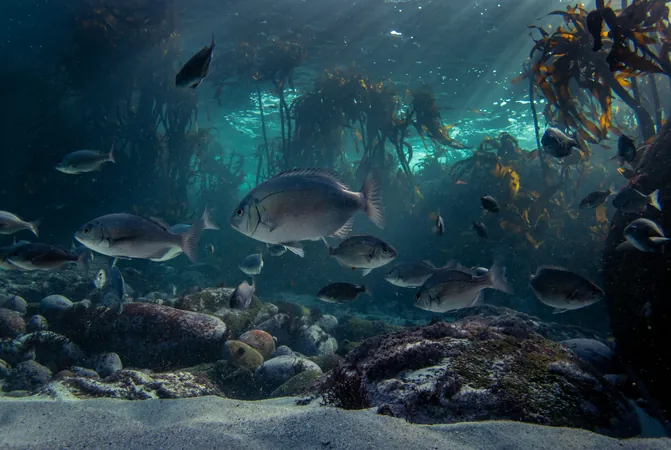
New Marine Life Database: The Key to Unlocking Ocean Biodiversity
2025-06-13
Author: Ming
Unlocking Secrets of the Sea
A groundbreaking database revealing the maximum body sizes of marine species is set to revolutionize our understanding of ocean biodiversity. This vital resource will spotlight the species most vulnerable to climate change and habitat destruction, enabling targeted conservation efforts to protect these critical ecosystems.
Filling the Knowledge Gaps
Unlike their terrestrial counterparts, our knowledge of marine life is riddled with gaps, particularly regarding the smaller species. While research often fixates on larger marine animals, scientists are now acknowledging the crucial role that smaller organisms play in ecological systems.
Introducing MOBS: A Comprehensive Database
An international team of researchers, including experts from the University of Sheffield, has launched the Marine Organismal Body Size Database, or MOBS, which catalogs data for 85,000 marine species—from tiny zooplankton to the mightiest whales. Dr. Tom Webb from the University of Sheffield emphasizes, Understanding body size is essential in predicting species interactions and responses to environmental shifts.
A Transformative Resource for Marine Research
Released in the prestigious scientific journal Global Ecology and Biogeography, the MOBS 1.0 paper highlights how dramatically insufficient our understanding of marine body sizes has been. This scarcity of data has severely hampered predictions related to climate change, overfishing, and habitat loss.
Why Size Matters in Marine Ecosystems
Body size is not merely a statistic—it’s fundamental to ecological dynamics. With marine food webs intricately organized by size, larger organisms prey on smaller ones, linking the entire ecosystem. For instance, the effects of overfishing large species ripple through to their smaller counterparts, potentially destabilizing marine environments.
Expanding the Database
Currently, the database includes about 40% of known marine species, with plans to expand this coverage to 75% in the next few years. Professor Craig R. McClain, the lead creator of MOBS, stresses that Body size isn’t just a number—it’s critical to understanding how life in the ocean functions.
Open Access for All Researchers
The MOBS database will be open source, providing unprecedented access to essential data for researchers and conservationists alike. This initiative not only closes a substantial knowledge gap but also paves the way for deeper insight into oceanic biodiversity.
A Call to Action
As global researchers tackle pressing issues such as climate change and biodiversity loss, the MOBS database stands as a beacon of hope, offering the tools necessary to protect and understand our oceans better. It’s time to harness this knowledge for the future of marine life!



 Brasil (PT)
Brasil (PT)
 Canada (EN)
Canada (EN)
 Chile (ES)
Chile (ES)
 Česko (CS)
Česko (CS)
 대한민국 (KO)
대한민국 (KO)
 España (ES)
España (ES)
 France (FR)
France (FR)
 Hong Kong (EN)
Hong Kong (EN)
 Italia (IT)
Italia (IT)
 日本 (JA)
日本 (JA)
 Magyarország (HU)
Magyarország (HU)
 Norge (NO)
Norge (NO)
 Polska (PL)
Polska (PL)
 Schweiz (DE)
Schweiz (DE)
 Singapore (EN)
Singapore (EN)
 Sverige (SV)
Sverige (SV)
 Suomi (FI)
Suomi (FI)
 Türkiye (TR)
Türkiye (TR)
 الإمارات العربية المتحدة (AR)
الإمارات العربية المتحدة (AR)